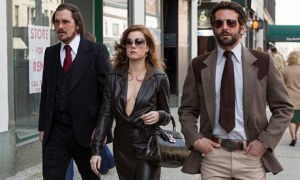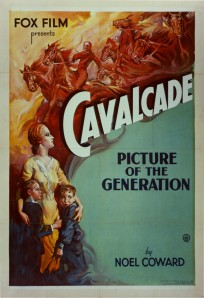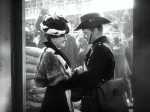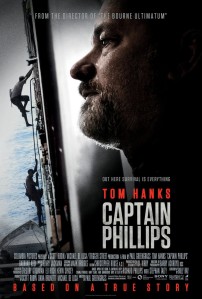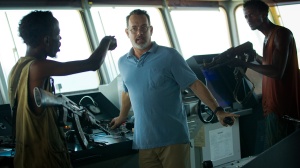 Here are my predictions for tonight’s potential Oscar winners, in addition to the films I feel SHOULD be honored (in parentheses below, because I just can’t help myself). I’m curious to know if they match any of your expectations! And sorry I’m posting them so late… Perhaps they’ll still serve some interest.
Here are my predictions for tonight’s potential Oscar winners, in addition to the films I feel SHOULD be honored (in parentheses below, because I just can’t help myself). I’m curious to know if they match any of your expectations! And sorry I’m posting them so late… Perhaps they’ll still serve some interest.
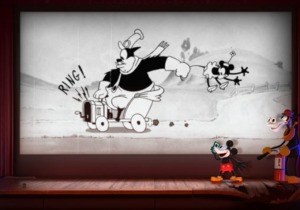
Disney’s 2013 short “Get A Horse!” pays homage to early Disney cartoons and the history of cinema in general.
BEST ANIMATED SHORT – Get a Horse! (Get a Horse!)
BEST LIVE-ACTION SHORT – The Voorman Problem
BEST DOCUMENTARY SHORT – The Lady in Number 6: Music Saved My Life
BEST DOCUMENTARY FEATURE – The Square
BEST MAKEUP & HAIRSTYLING – Jackass Presents: Bad Grandpa (Dallas Buyers Club)
BEST COSTUME DESIGN – American Hustle (American Hustle)
BEST PRODUCTION DESIGN – The Great Gatsby (Her)
BEST VISUAL EFFECTS – Gravity (Gravity)

“Gravity” is a lock for numerous technical awards, as much of the above-earth film was created through visual effects and animation.
BEST SOUND EFFECTS EDITING – Gravity (Gravity)
BEST SOUND MIXING – Gravity (Gravity)
BEST FILM EDITING – Gravity (Gravity)
BEST CINEMATOGRAPHY – Gravity (Gravity)

Disney’s 2013 critical and commercial hit “Frozen” is likely to win two awards; one for its song “Let It Go.”
BEST ORIGINAL SONG – Frozen (Frozen …er, really, The Great Gatsby. If only Lana got the nomination she deserved.)
BEST ORIGINAL SCORE – Gravity (Gravity)
BEST ANIMATED FEATURE – Frozen (Frozen)
BEST FOREIGN LANGUAGE FILM – The Great Beauty (The Great Beauty)
BEST ADAPTED SCREENPLAY – 12 Years a Slave (The Wolf of Wall Street)
BEST ORIGINAL SCREENPLAY – Her (Nebraska)
BEST SUPPORTING ACTRESS – 12 Years a Slave (American Hustle)

Relative newcomer Lupita Nyong’o is likely to win an award tonight for her stunningly raw performance as the slave Patsey.
BEST SUPPORTING ACTOR – Dallas Buyers Club (Dallas Buyers Club)
BEST ACTRESS – Blue Jasmine (Blue Jasmine …would have loved for Emma Thompson to be nominated for Saving Mr. Banks, too.)
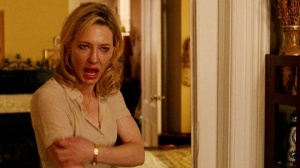
Cate Blanchett gives a truly harrowing turn as a deteriorating divorcee in Woody Allen’s “Blue Jasmine.”
BEST ACTOR – Dallas Buyers Club (Nebraska)

Not only did Matthew McConaughey lose weight for his role of Ron Woodruff, he provides a genuinely impressive performance.
BEST DIRECTOR – Gravity (Gravity)
BEST PICTURE – 12 Years a Slave (Nebraska)
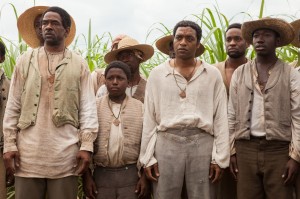
Although it’s been a tight race between “12 Years a Slave” and “Gravity,” it appears that the former story about a free man being captured into the slave trade will triumph for the big prize.
Tell me what you think, what your picks are, and we’ll all see how things go!

